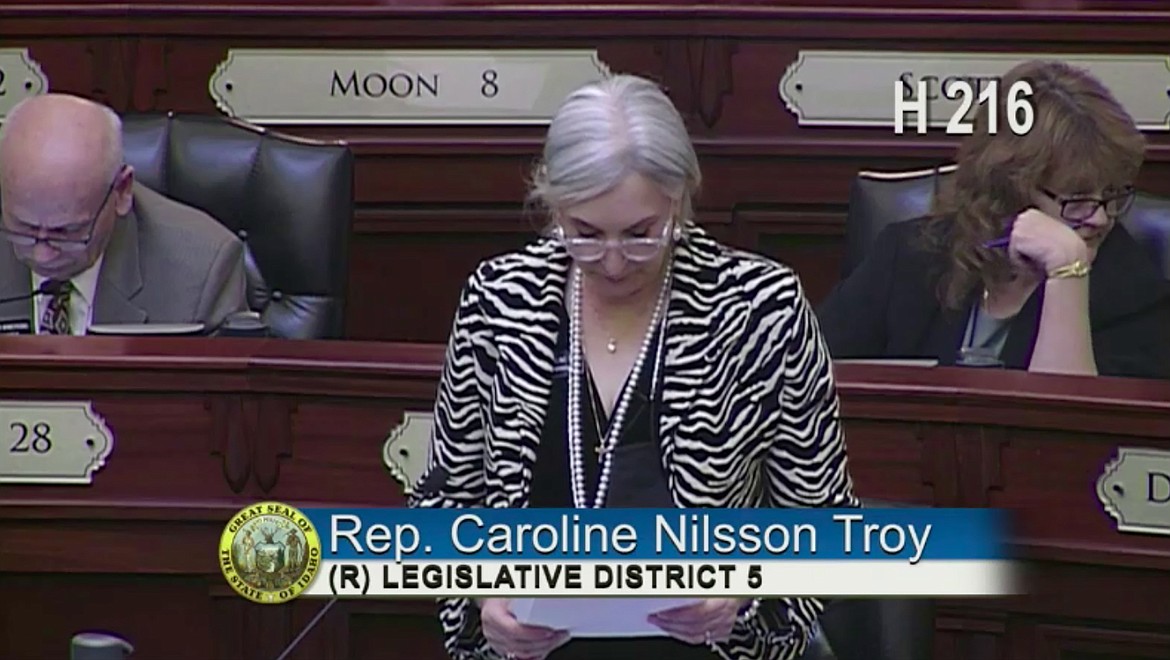Bill enhancing Medicaid funds passes the Idaho House
BOISE — In the midst of a pandemic that has lasted nearly a year now, health care is one of the biggest issues within battling COVID-19.
House Bill 216, which would give the Idaho Department of Health and Welfare an extra $369 million-plus, will fund the bills incurred by Idahoans that participate in Medicaid and Medicaid expansion. It passed with a narrow 37-31 vote.
Rep. Caroline Nilsson Troy, R-Genesee, sponsor of HB 216, mentioned rural hospitals and those on Medicaid within those hospitals are not being able to receive care. She said those areas lack nurses and health professionals to help with the ongoing pandemic. Helping Medicaid pay the bills to then be able to help those enrolled in Medicaid is something Troy said she believes is Idaho’s responsibility, since Idaho citizens voted to expand Medicaid in the last election.
“I’m concerned about those rural hospitals,” said Troy. “They are struggling to keep their nurses on board.”
The representative said that while people from both parties might disagree on the concept of Medicaid, they could all agree that Idaho has to be accountable in paying its bills.
Medicaid expansion was voted on by citizens and passed by the Legislature that Medicaid would expand to cover those who were ineligible for subsidies and also ineligible for Medicaid. In 2020, that gap closed to cover 53,000 people as of last January, and a year later projections are much higher — nearing about 92,000.
Rep. Ron Nate, R-Rexburg, said he was adamant that Idaho should be able to fund things on its own, rather than also using some federal money to help fund programs.
“Let’s find ways to fund things ourselves and stop spending other people’s money,” said Nate.
During the debate on the floor, Nate made it clear he was against the expansion already since his district did not vote for it.
“Do I fund a program my district didn’t want?” Nate asked.
Even though his district, District 34, may not have voted for it, they still have 4,438 people on Medicaid expansion, and 9,806 people on Medicaid in general.
The Eastern Idaho Medical Center, which is just outside of Rexburg, was in a crisis in December. They were dividing up surgeries and nurses from the resources they had based on who was more likely to survive. It was a dire situation for EIMC, and many other Idaho hospitals had the same issue. The resources were simply just not available.
Rep. Vito Barbieri, R-Dalton Gardens, also came out opposed to HB 216. He said that Idaho simply cannot afford to use federal money.
“We are committing our children to economic slavery,” said Barbieri.
The federal government has to fund a good part of Idaho’s expenditures, since Idaho’s low wages force its hand to cover the gap. This involves medical expenditures, social services, and even infrastructure and technology. This is due to the Federal Medical Assistance Percentage which is computed using the state’s per capita income. Idaho has the fourth lowest per capita income in the nation, so using federal money will not change until Idaho’s income does.
Troy said if this bill ends up not going through, the program will not be able to pay bills that go out to providers across Idaho. Hospitals and health providers may not be able to keep their doors open any longer, since Troy pointed out that they are already struggling as it is.
Rep. Rick Youngblood, R-Nampa, agreed with Troy’s view that Idaho needs to continue to pay its bills.
“The money has been spent, the obligations are due, that’s what Idaho does,” said Youngblood.
House Bill 216 will move on to the Senate for its evaluation there, where it will be read and voted on. If passed, it will be forwarded to Gov. Brad Little to sign.
If not passed, Troy said she believes Idaho will continue to see legislation, and the state will see health care fail at the hands of unavailable funds. It’s up to Idaho to decide what to do when its hospitals and health care providers are wrestling with COVID-19, she said.
Alexandra Duggan is an intern with the University of Idaho McClure Center for Public Policy Research and the UI JAMM News Service.

